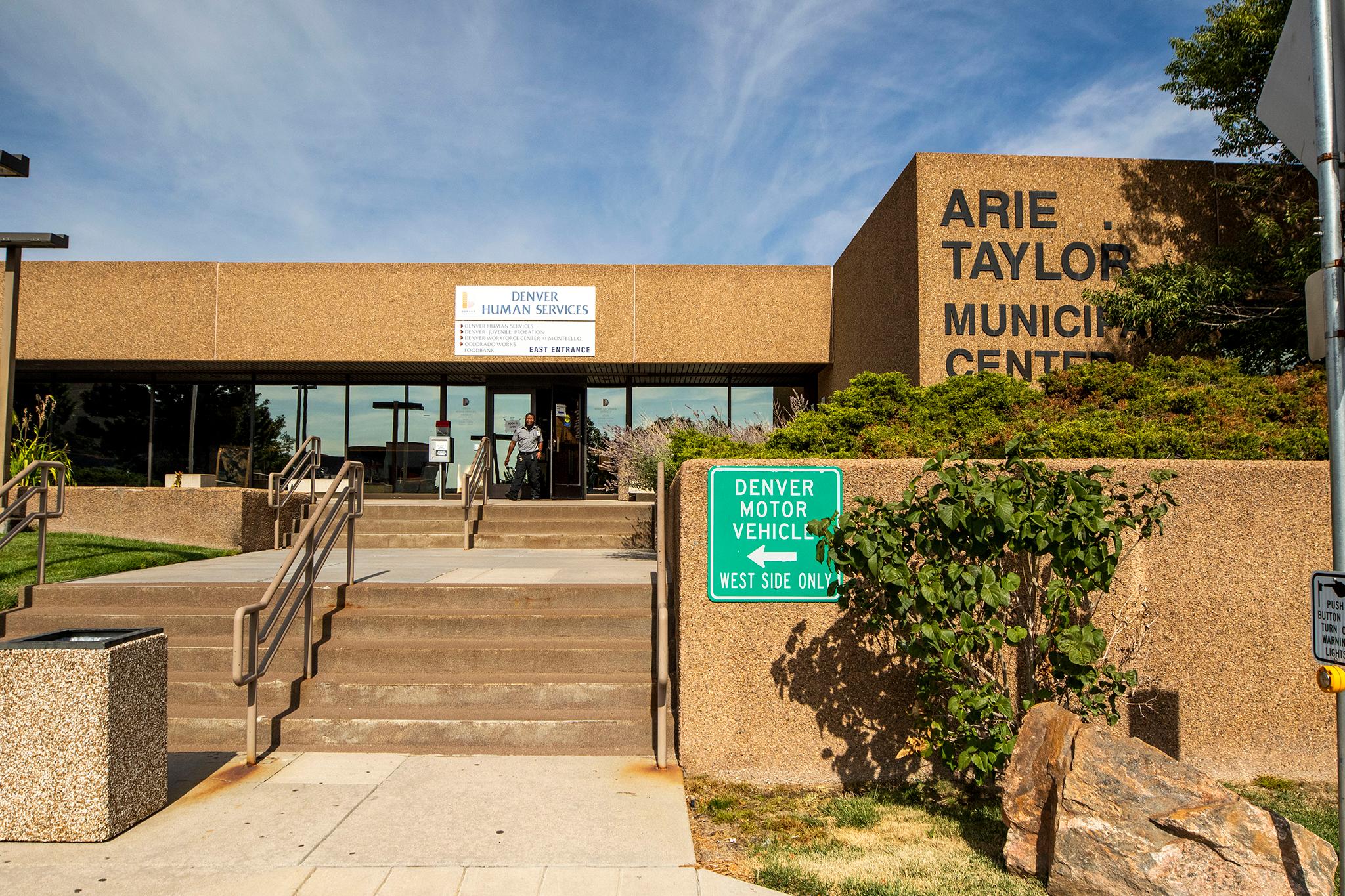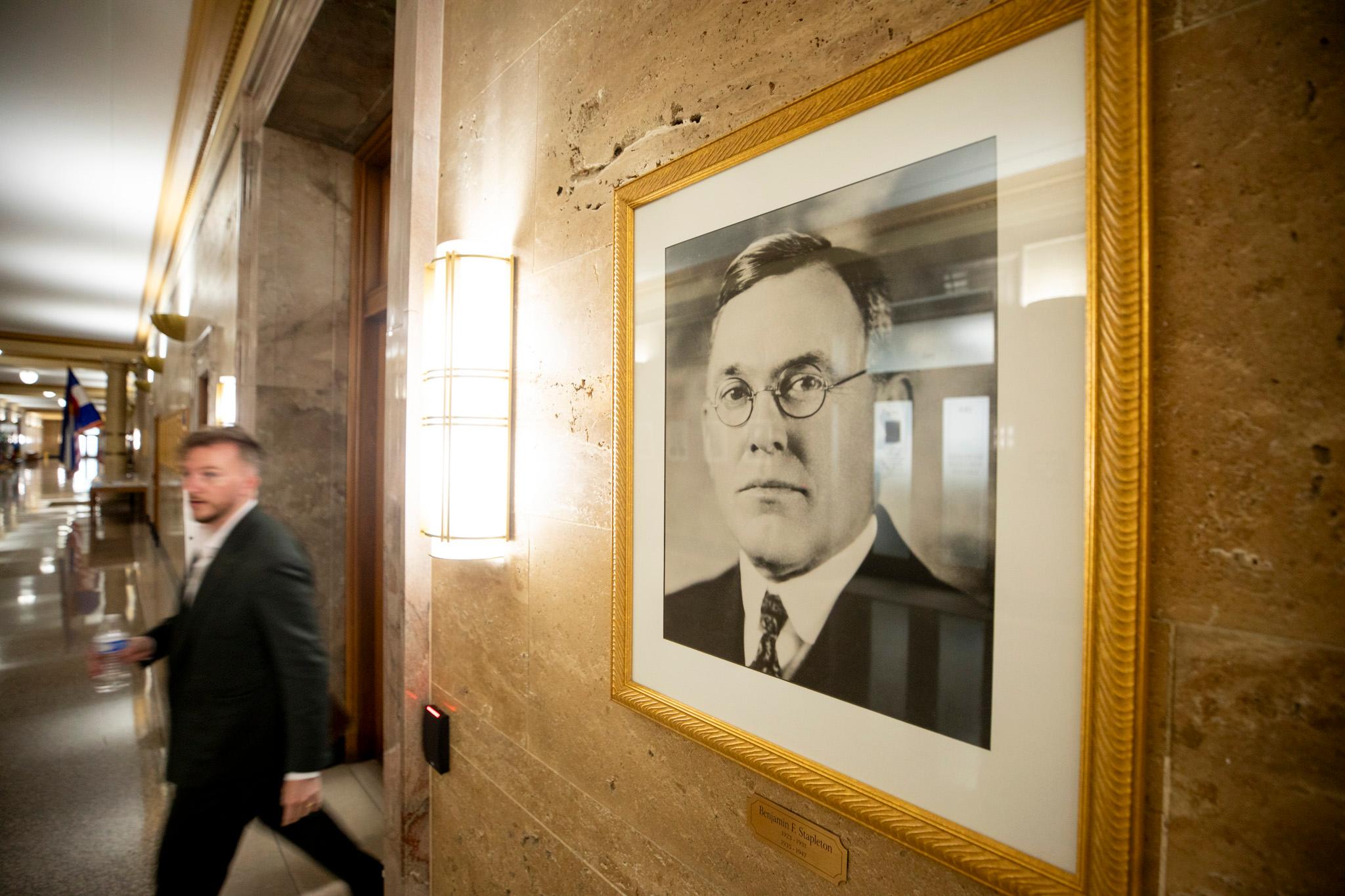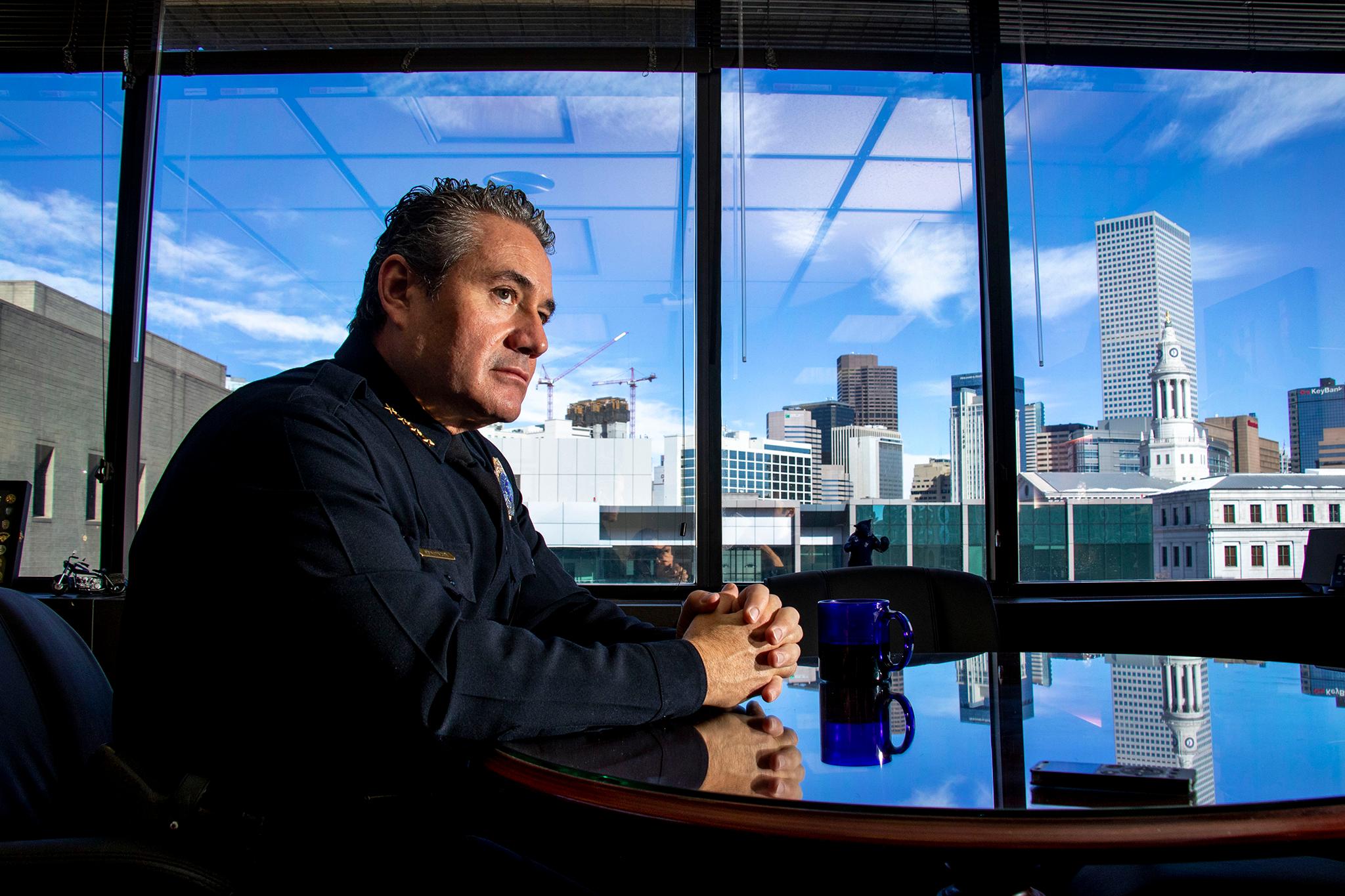How can artificial intelligence make government work better?
That’s the question tech and government leaders from around the country discussed at the DenAI Summit at the Denver Art Museum this week.
The event was Mayor Mike Johnston’s show, an attempt to put Denver in the national conversation about AI in government — and lure tech companies to town.
Johnston launched the event last year with a discussion with his biggest campaign funder, LinkedIn founder Reid Hoffman, who has made a mission of using AI “for good.”
This year, Johnston hosted panels like “The Moment to Lead: AI, Cities, and the Opportunity to Lead,” “Reimagining Civic Trust and Empathy with AI,“ and “The Architecture of Reform: What It Takes to Modernize Government.”
Johnston used the event to promote the technology as a way to improve government. At the same time, he defended his recent cuts to the city budget and tried to defuse the ethical, environmental and moral questions that come with the technology,
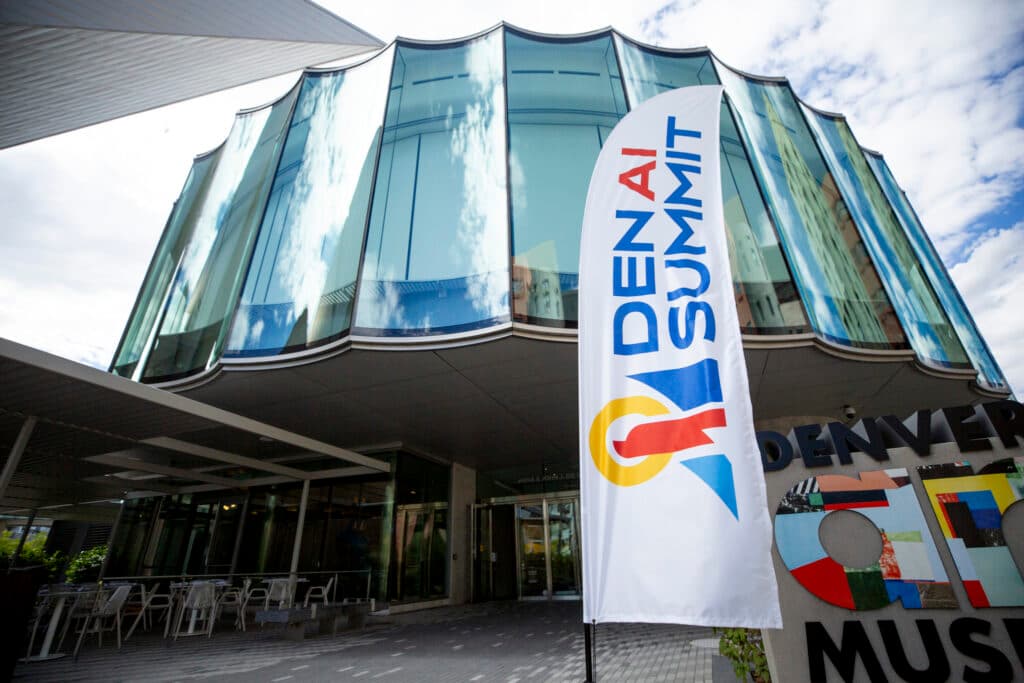
Johnston is already embracing AI in daily government operations – while laying off city workers.
The mayor’s administration just cut 170 employees and closed hundreds of vacant city jobs, and Johnston’s proposed budget would shrink general fund spending by 6 percent next year amid slowing revenues.
At the conference, Johnston said AI could make Denver’s government more efficient and modern despite the cuts.
The city already runs thousands of public service requests through its chatbot, Sunny. Need a pothole filled? Want to pay a ticket online? Trying to figure out how to file a permit? Homeless and need help? Ask Sunny.
The city’s proposed 2026 budget would rely on Sunny to replace some human customer service agents. It would cut 10 customer service positions, with the 311 call centers closing at 5 p.m. instead of 7 p.m. In all, automation could save an estimated $2.8 million on 311 services next year.

Meanwhile, Denver safety inspectors use AI to route their drives to various sites, making their trips more efficient. And the mayor runs his office’s scheduling through Chief AI.
“By adopting Chief AI, Mayor Johnston’s office is transforming their workflow, replacing scattered documents and manual processes with a centralized, intelligent command center,” the company stated online.
The police department uses an AI-powered surveillance system, Flock, to track license plates and share the data with other departments. The tool helps curb car thefts and solve homicides, even as civil liberty advocates have raised concerns about how the information has been used by federal immigration officials.
Johnston also uses AI himself, including to research football stadiums ahead of the announcement that the Broncos could move to Burnham Yard.
“Denver is one of the few places talking about government in AI,” said Tenzin Priyadarshi, CEO of the Dalai Lama Center for Ethics and Transformative Values at the Massachusetts Institute of Technology, in a conversation with Johnston about AI and ethics.
Denver has even changed its “chief information officer” to its “chief AI and information officer.” Suma Nallapati holds that job, overseeing contracts and implementation with AI corporations and ensures they meet the city’s standards.
Many of these tools are sold and run by private companies raising questions about how much energy is used, what privacy and data sharing guardrails exist, whether companies explain how their technologies actually work — and whether they are trustworthy.
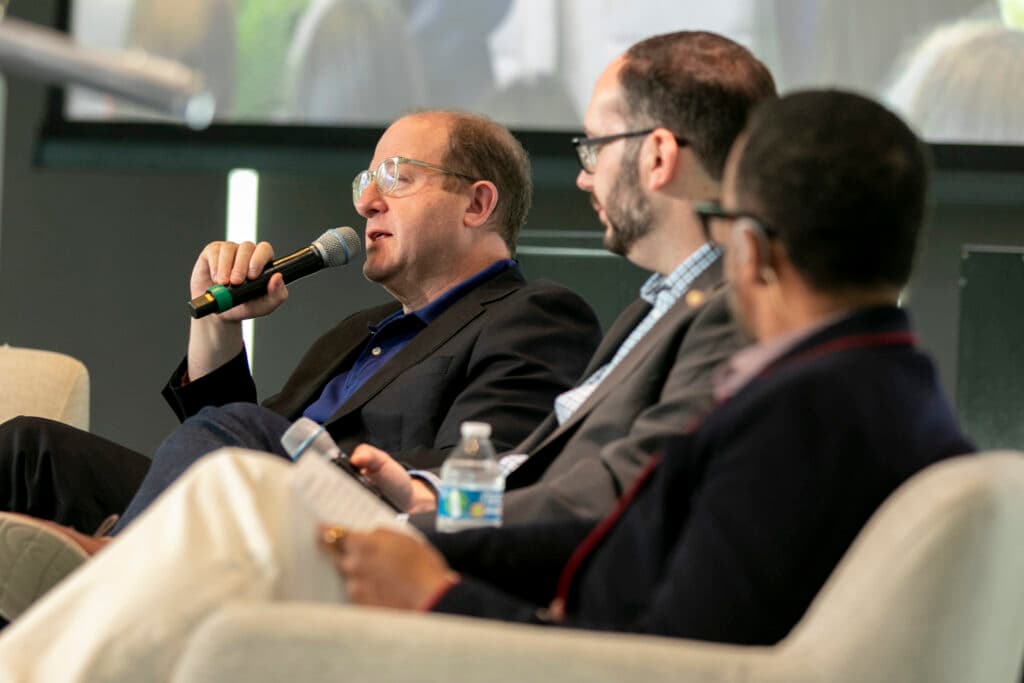
But overall, Johnston wants to move faster.
“We're trying to really move towards a culture that is far more risk tolerant, and our view is, I would much rather have you try something innovative and fail at an attempt to make government run better than see something running poorly and do nothing for fear of getting into trouble about changing it,” Johnston said.
Johnston insists his push for AI comes from city workers themselves. He said they have told him they want to waste less time doing tasks more suited to AI and instead focus on creative, human-driven tasks.
“What we're more interested in is, how can we use it more regularly by city employees to make their lives easier,” he said.
Some city workers are skeptical.
Earlier this year, city workers compared Johnston’s efforts to streamline government to President Donald Trump’s Department of Government Efficiency. And multiple city workers have told Denverite they fear being replaced by artificial intelligence, especially as the city has changed the rules for layoffs and reduced seniority protections.
In contrast, Johnston cited the sluggish process for development permits as an example. It currently takes the city 28 days to tell applicants that their applications were received.
With AI, “that takes just one second,” Johnston said.
Denverite asked Johnston if he thinks AI could eventually govern and make laws.
Humans, he said, have to make moral choices that sometimes don’t make pure mathematical sense.
“I think we can have AI help us have the best input information to make that decision, but I don't think it will ever supplant our ability to decide,” he said.







